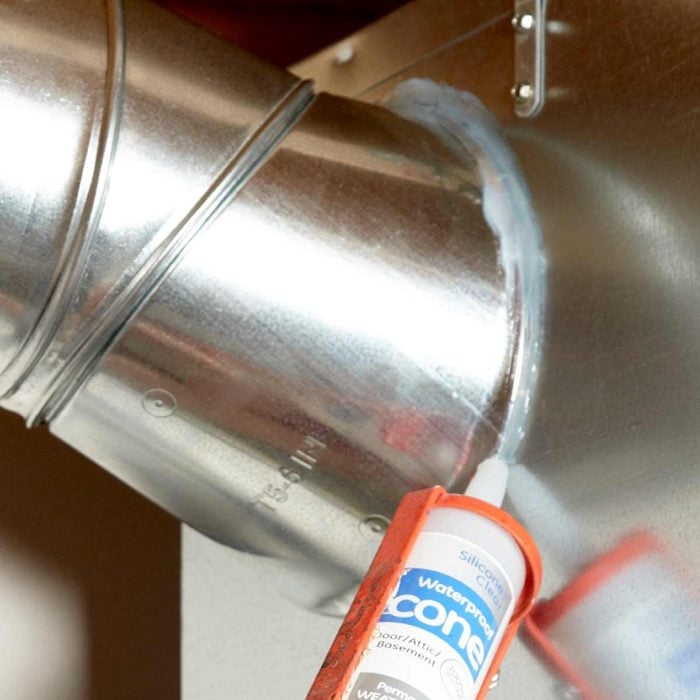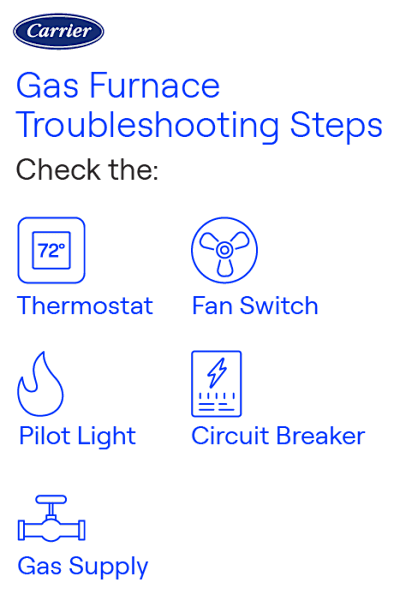Is your heater acting up when you need it the most? You’re not alone.
When your home heater stops working, it’s more than just an inconvenience—it can make you feel cold, frustrated, and helpless. You might wonder why it suddenly stopped heating your space or if it’s something you can fix yourself. Keep reading, because understanding the common reasons behind a faulty heater can save you time, money, and stress.
By the end of this article, you’ll know exactly what to check and how to get your heater back to keeping your home warm and cozy.
Common Heater Problems
Heaters can stop working for several reasons, and identifying the common problems can save you time and frustration. Before calling a professional, it helps to check a few usual suspects that might be causing the issue. These common heater problems are often easy to spot and fix, making your home warm again faster than you expect.
Thermostat Issues
Your thermostat controls the temperature, but it can sometimes malfunction. If your heater isn’t turning on, check if the thermostat is set to “heat” and the temperature is higher than the current room temperature.
Sometimes, batteries in a wireless thermostat die, or the device may need recalibration. Have you ever experienced your heater refusing to start despite a high setting? It might be your thermostat sending the wrong signals.
Dirty Or Clogged Filters
Filters trap dust and debris, keeping your heater running smoothly. When they get clogged, airflow reduces, and the heater can overheat or shut down as a safety measure.
Regularly replacing or cleaning filters is a simple task that can prevent many heating problems. Think about the last time you changed your filter—could neglect be the reason your heater isn’t working?
Pilot Light Problems
For gas heaters, the pilot light ignites the burner. If the pilot light is out, your heater won’t produce heat. Sometimes, drafts or a dirty pilot tube cause it to go out unexpectedly.
Relighting a pilot light is usually straightforward, but be sure to follow safety instructions carefully. Have you checked if your pilot light is still burning before assuming the heater is broken?
Tripped Circuit Breaker
Electrical issues can stop your heater from working, especially if the circuit breaker trips. This happens when the heater draws too much power or there’s a short circuit.
Check your breaker panel and reset any tripped switches. Could a simple flip restore warmth to your home without waiting for a technician?
Simple Diy Fixes
Simple DIY fixes can often solve common heater problems. They save time and money before calling a professional. These easy checks and actions restore warmth quickly. Anyone can try them with minimal tools and effort.
Resetting The Thermostat
Sometimes the thermostat stops working properly. Resetting it can fix the issue fast. Turn the thermostat off and wait a few minutes. Then, turn it back on and set the desired temperature. This refreshes the system and may restart heating.
Replacing Or Cleaning Filters
Dirty filters block airflow and reduce heater efficiency. Check the filter’s condition regularly. Replace disposable filters with new ones or clean reusable filters carefully. Clean filters improve air quality and help the heater work better.
Relighting The Pilot Light
Gas heaters use a pilot light to start heating. The pilot light can go out, stopping heat production. Find the pilot light and follow the manufacturer’s instructions to relight it safely. A small flame means the heater is ready to work again.
Resetting The Circuit Breaker
Power issues can stop the heater from running. Check the circuit breaker box for tripped switches. Flip the heater’s breaker off and then on again. This resets the electrical flow and can restore heater operation.
When To Check The Power Source
Checking the power source is a key step if your heater does not work. Power issues often cause heaters to stop functioning. Start by examining the cords and outlets. Then test the heater’s switch. These checks help find simple problems fast. Fixing power problems can save time and money. Keep safety in mind while inspecting electrical parts.
Inspecting Power Cords And Outlets
Look for damage on the heater’s power cord. Cuts, frays, or burns can stop electricity flow. Make sure the plug fits tightly in the outlet. Loose plugs can cause power loss. Try plugging the heater into a different outlet. This checks if the original outlet is faulty. Check for tripped circuit breakers or blown fuses in your home panel. Reset breakers or replace fuses if needed.
Testing The Heater Switch
The heater switch controls power flow to the unit. Sometimes the switch can fail or get stuck. Turn the switch on and off several times. Listen for a clicking sound that shows it is working. Use a multimeter to test switch continuity if available. Replace the switch if it does not work properly. A broken switch can prevent the heater from turning on.

Credit: www.familyhandyman.com
Maintenance Tips To Prevent Issues
Proper maintenance keeps your heater running smoothly and prevents breakdowns. Small efforts save big repair costs. Regular care improves heating efficiency and air quality. Here are some key tips to maintain your heating system effectively.
Regular Filter Replacement
Dirty filters block airflow and make your heater work harder. Change filters every 1 to 3 months. Choose the right size and type for your system. Clean filters improve heating performance and reduce energy bills.
Annual Professional Inspection
Schedule a yearly checkup with a heating expert. Professionals spot hidden problems early. They clean, adjust, and test your system. This keeps your heater safe and reliable through winter.
Keeping Vents Clean
Blocked vents reduce heat circulation in your home. Clear dust and debris from vents regularly. Use a vacuum or soft brush for cleaning. Open vents fully to allow warm air to flow freely.
Signs You Need Professional Help
Knowing when to call a professional for your heater can save you time, money, and stress. Sometimes, small problems signal bigger issues that only an expert can fix safely and effectively. Recognizing these signs early can prevent your home from becoming uncomfortably cold or even unsafe.
Persistent Heater Failures
If your heater keeps turning off unexpectedly or won’t start at all, it’s more than just a minor glitch. You might reset the thermostat multiple times, but the heater still refuses to work consistently. This repeated failure often points to electrical or mechanical problems that need a trained technician’s attention.
Think about how frustrating it is when your heater gives up on you during a cold night despite your efforts to fix it yourself. Ignoring these issues could lead to complete breakdown or higher repair costs later on.
Unusual Noises Or Smells
Have you noticed strange sounds like banging, rattling, or squealing coming from your heater? These noises can indicate loose parts, motor issues, or blocked airflow. Additionally, odd smells such as burning or a musty odor are clear warnings that something is wrong.
Don’t dismiss these signs as normal wear and tear. Ignoring unusual noises or smells might put your heater at risk of permanent damage or create safety hazards in your home.
Gas Leak Concerns
If your heater runs on gas and you detect a sulfur-like or rotten egg smell, it could mean a gas leak. This is a serious danger that demands immediate professional intervention. Never try to locate the leak yourself or delay calling an expert.
Gas leaks can lead to fire, explosions, or health issues. If you suspect even the slightest leak, evacuate your home and contact emergency services along with a licensed technician right away.

Credit: www.angi.com

Credit: www.furnaceprices.ca
Frequently Asked Questions
Why Is My Home Heater Not Turning On?
If your heater isn’t turning on, check the thermostat settings first. Ensure it’s set to “heat” mode. Next, inspect circuit breakers and power supply. Clogged filters can also cause issues. If problems persist, it might be time to call a professional for a thorough inspection.
What Causes A Heater To Blow Cold Air?
A heater blowing cold air may indicate a thermostat issue. Check if it’s set correctly. Dirty filters or blocked vents can also cause this problem. Inspect your furnace’s pilot light if applicable. Regular maintenance can prevent such issues and ensure efficient heating.
How Often Should I Service My Home Heater?
It’s recommended to service your home heater annually. Regular maintenance improves efficiency and prolongs the heater’s lifespan. It also helps identify potential issues early. Schedule a professional inspection before the heating season starts. This ensures your heater works efficiently when you need it most.
Can A Faulty Thermostat Affect Heating?
Yes, a faulty thermostat can disrupt your heating system. It may cause uneven heating or prevent the heater from turning on. Check for loose wires or low batteries. Recalibrating or replacing the thermostat can solve the issue. Regular inspection ensures optimal performance.
Conclusion
A heater that does not work can cause real discomfort. Check simple issues like power supply, thermostat settings, or blocked vents first. Sometimes, dirt or a broken part stops heat from flowing. Regular maintenance helps keep your heater working well.
Don’t wait too long to fix the problem. Staying warm is important for health and comfort. Call a professional if you cannot find the cause. A working heater makes your home cozy during cold days. Take action soon to avoid bigger problems later.

